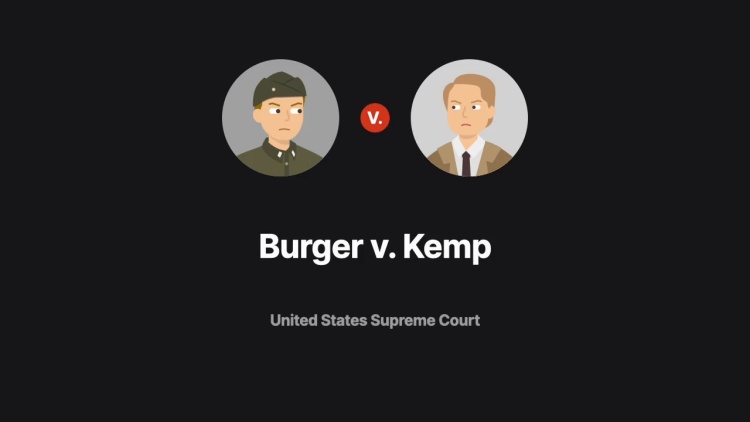Burger v. Kemp
United States Supreme Court
483 U.S. 776 (1987)

- Written by Sean Carroll, JD
Facts
Burger (defendant) and Stevens were charged with murder and tried separately. Leaphart was appointed to represent Burger and Leaphart’s law partner was appointed to represent Stevens. Both Burger and Stevens confessed, but at trial stated that the other was more culpable in the killing. Burger was the one who actually killed the victim. Both Burger and Stevens were convicted and both appealed. Leaphart had helped his partner in defending Stevens throughout and drafted the appellate briefs for both Burger and Stevens. Although Leaphart had argued for Burger at trial that Stevens was more culpable, he omitted that argument in Burger’s appellate brief. Burger was convicted and filed a federal petition for habeas relief, arguing that Leaphart’s failure to raise the culpability issue in the appellate brief rendered his assistance ineffective in violation of Burger’s constitutional right to counsel. The district court rejected Burger’s claim and the court of appeals affirmed. The United States Supreme Court granted certiorari.
Rule of Law
Issue
Holding and Reasoning (Stevens, J.)
Dissent (Blackmun, J.)
What to do next…
Here's why 907,000 law students have relied on our case briefs:
- Written by law professors and practitioners, not other law students. 47,100 briefs, keyed to 996 casebooks. Top-notch customer support.
- The right amount of information, includes the facts, issues, rule of law, holding and reasoning, and any concurrences and dissents.
- Access in your classes, works on your mobile and tablet. Massive library of related video lessons and high quality multiple-choice questions.
- Easy to use, uniform format for every case brief. Written in plain English, not in legalese. Our briefs summarize and simplify; they don’t just repeat the court’s language.





